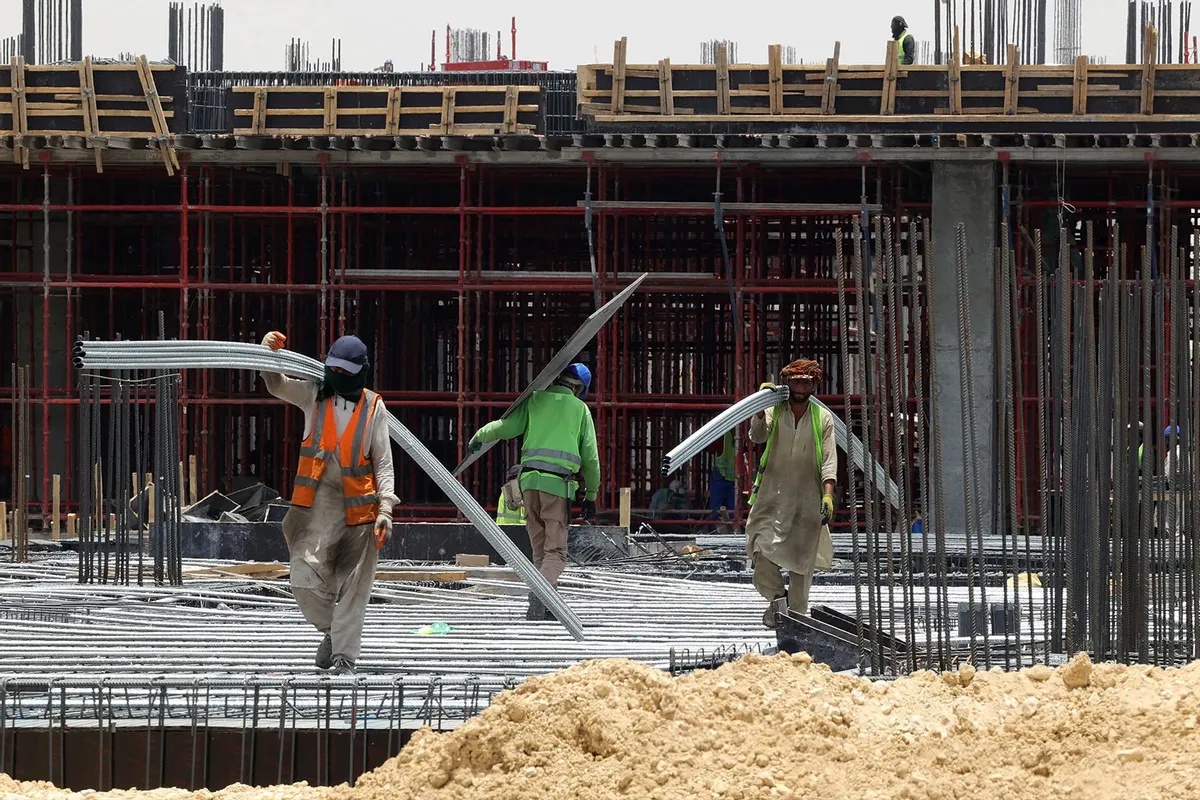Physical Address
304 North Cardinal St.
Dorchester Center, MA 02124
Physical Address
304 North Cardinal St.
Dorchester Center, MA 02124

As Saudi Arabia ramps up infrastructure projects for the 2034 FIFA World Cup, human rights organizations are reporting a disturbing trend: World Cup construction deaths are rising, and most could have been prevented.
The victims are migrant workers. Their deaths are linked to dangerous job sites and a lack of basic protections.

Saudi Arabia’s construction boom is being built on the backs of migrant workers from South Asia, Africa, and Southeast Asia. These workers dominate sectors like construction, sanitation, and hospitality—jobs that often come with high risk and little oversight.
Heat exhaustion, electrocution, falls from scaffolding, and even decapitations have been reported. Rights groups like Human Rights Watch say the work conditions are not just harsh—they’re deadly.
When risk meets neglect, the results are fatal.
Instead of treating these fatalities as workplace accidents, Saudi authorities often classify them as “natural causes.” This means no autopsies, no investigations, and no accountability.
Human Rights Watch and FairSquare argue this practice is systemic. It prevents families from receiving compensation and allows employers to avoid liability altogether.
When World Cup construction deaths are mislabeled, justice is buried with the worker.
Many families are never told the full story. Some are offered local burials in Saudi Arabia as a condition for receiving compensation. Others are left waiting indefinitely for news, payments, or the return of their loved one’s belongings.
Reports show bodies being withheld, personal effects disappearing, and employers pressuring families into silence.
The human cost isn’t just physical—it’s emotional, financial, and generational.

Before the 2022 World Cup, Qatar created a Supreme Committee to improve labor conditions. It had flaws, but it was a start. Saudi Arabia, however, has no similar oversight body in place.
There are no mandated safety audits. No worker heat protections. No guaranteed life insurance. And no central authority monitoring labor rights on stadiums or mega-projects.
Without independent enforcement, World Cup construction deaths could grow into the thousands.
In March 2025, Muhammad Arshad—a Pakistani foreman—died while working at the Aramco Stadium construction site. It’s the first publicly known fatality tied to World Cup infrastructure.
Authorities say an investigation is underway. Rights groups are skeptical, pointing to past patterns of inaction and opacity.
His case won’t be the last unless serious reforms are made.
FIFA has pledged to uphold human rights, but critics say awarding the 2034 tournament to Saudi Arabia—with no enforceable labor reforms—undermines that commitment.
So far, there’s no binding agreement for worker protections. No mechanism to ensure compliance. Just promises.
As World Cup construction deaths mount, the world is watching—and waiting for action.

What’s happening in Saudi Arabia isn’t new. It echoes the warnings raised during Qatar’s World Cup buildup. The difference? This time, the world has fewer excuses.
Without immediate safeguards and transparent oversight, the road to 2034 could be paved with more preventable deaths.
Every lost life is a chance missed to do better. The clock is ticking.
Daily News. No B.S. No Fluff. Just What You Need to Know.